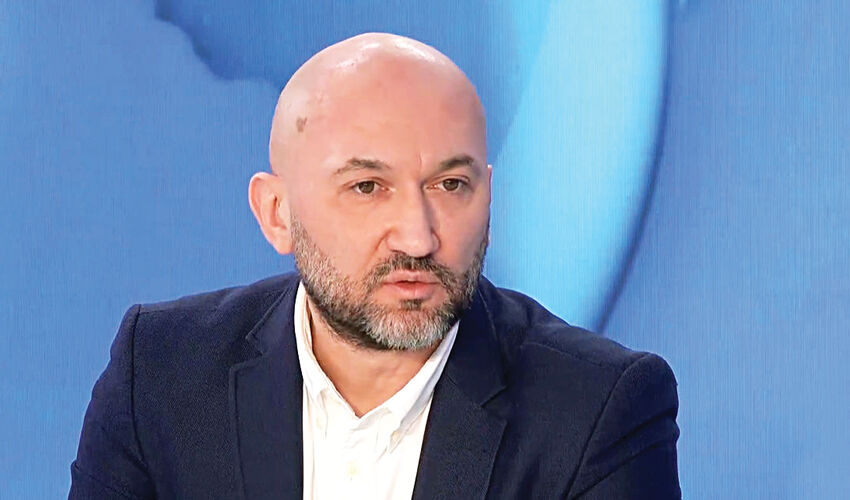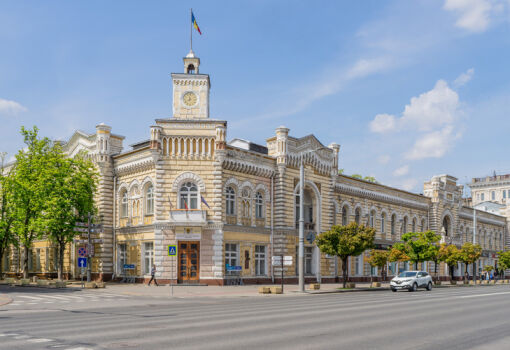
Vyacheslav Tofan
The report is entitled “Media Freedom in Moldova: Instability, Unjustified Restrictions and Self-Censorship amid Polarized Politics”.
All media outlets in Moldova, regardless of their political affiliations, sources of funding and the language in which they are published, face numerous challenges, including restrictions based on vague national legislation; unjustified sanctions lacking due process; and harassment, the document says.
It documents the risks to the media posed by measures taken by the Moldovan authorities, including the imposition and abuse of emergency powers, especially since the outbreak of the war in Ukraine in February 2022. It shows how authorities have resorted to suspending broadcasting licenses without transparency and judicial oversight to allegedly counter the spread of Russian-origin disinformation and alleged Russian attempts to illegally influence Moldovan politics.
Following the outbreak of war in Ukraine, the Moldovan parliament declared a state of emergency, giving the Commission for Emergency Situations (CES), a non-judicial body, the power to impose new rules on media outlets and sanction them. Before the state of emergency expired, the EC suspended the broadcast licenses of 12 television stations and blocked access to dozens of websites in response to alleged threats from Russia.
The EC’s extrajudicial powers expired simultaneously with the lifting of the state of emergency, on December 30, 2023, and were transferred to the Council for the Promotion of Investment Projects of National Importance (CPIPNI) under hastily passed legislation that, absurdly enough, was supposed to ensure the “integrity and functionality of the electricity market.” CPIPNI revoked licenses without due process, permanently or temporarily, of at least 18 television and radio stations owned by individuals and entities of interest to the security services, or only suspected of being owned by such entities due to opaque ownership schemes.
A senior Moldovan official argued that revoking media licenses out of court was a “wartime measure” necessary in response to Russian threats in the media sector, compounded by the difficulties associated with inefficient and slow courts in Moldova.
The only option for the affected media is to challenge the sanctions once they have been imposed. The six TV channels deprived of their licenses appealed the decision in court. The judge upheld the sanctions based solely on a procedural due process review and not on the legality of the decision in terms of Moldova’s compliance with international human rights obligations.
These extraordinary measures, along with the lack of protection against harassment and vague legislation, have led to self-censorship even among some pro-European media outlets bought “off the rack” with European or U.S. money. Representatives of three such outlets told Amnesty International that they are afraid to say a single critical word about the current authorities for fear of losing foreign funding or the local government’s media support fund for those who support the ruling party.
“The situation is clearly catastrophic. The authorities should not jeopardize fundamental freedoms,” the report wrote.
In addition to quickly passing controversial new laws, the government continues to rely on earlier, overly restrictive and vaguely worded legislation that prohibits the dissemination of disinformation (without a clear definition of the term) and the rebroadcasting of “audiovisual television and radio programs of informative, informational, analytical, military and political content” produced outside a limited list of countries.
“When the government decides that it can bypass judicial oversight in applying penalties as severe as revoking a media license and hastily passes legislation “legalizing” this approach, it harms all Moldovan media and undermines human rights. It leads to self-censorship, suppresses freedom of expression and hampers access to legal remedies. Such measures directly contravene international human rights law and should be repealed immediately,” said Veaceslav Tofan, executive director of Amnesty International in Moldova.
In contrast, Petru Macovei, head of the Independent Press Association of Moldova and member of the Center for Strategic Communications and Combating Disinformation, believes that the measures taken by the authorities are justified.
“I do not agree with the claims that self-censorship has appeared in all Moldovan media. Perhaps this can be said about some publications in Gagauzia,” Petru Macovei told Logos Press. – I also believe that the closure of a number of media outlets was legally justified and did not affect the pluralism of opinions in Moldova.
Earlier, the Moldovan authorities were criticized by the European Commission and the U.S. State Department for their excessively harsh actions towards the Moldovan media.
Nevertheless, when Alexandru Munteanu was still a candidate for prime minister, he said during a parliamentary hearing that “I have not met a more independent press, in every sense – both in a good sense and in the most uncomfortable sense for a politician – than in the Republic of Moldova.
So, in this matter the points of view of the international community and the Moldovan authorities categorically do not coincide. And the latter, according to leaked information, are preparing a new round of restrictive measures against those who try to criticize them, especially in social networks.



